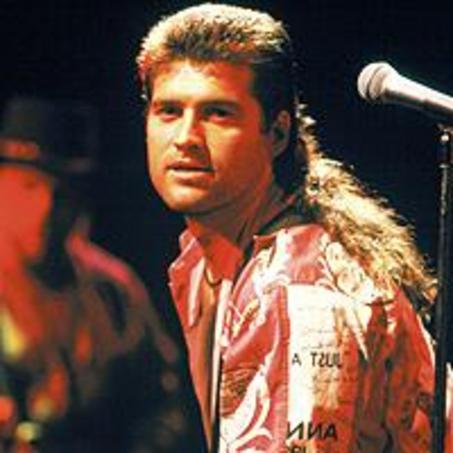Here’s how to take the best qualities of the world’s worst songs to write great music.
____________
“The Essential Secrets of Songwriting” 6-eBook Bundle comes with this FREE eBOOK: “From Amateur to Ace: Writing Songs Like a Pro”.
_____________
 “Achy Breaky Heart”, written by Don Von Tress and made most famous (or perhaps infamous) by Billy Ray Cyrus in 1992, is an enormously successful song in terms of sales and chart placement. Topping the charts in many countries, it made its impact on both the Billboard Hot 100 (no. 4), and the Billboard Country Songs Chart (no. 1), and was at or near the top of the charts in most countries in the western world.
“Achy Breaky Heart”, written by Don Von Tress and made most famous (or perhaps infamous) by Billy Ray Cyrus in 1992, is an enormously successful song in terms of sales and chart placement. Topping the charts in many countries, it made its impact on both the Billboard Hot 100 (no. 4), and the Billboard Country Songs Chart (no. 1), and was at or near the top of the charts in most countries in the western world.
Not so paradoxically, “Achy Breaky Heart” also makes it to most “worst songs ever” lists. In pop music genres, corny lyrics are eventually a death sentence.
When the musical conversation comes around to “What were we thinking?”, that song is usually mentioned along with “Macarena” and other notables. The thing is, you can’t call them notable “flops”, because these songs did not flop. Part of what makes a song “the worst” is the uncomfortable knowledge that we initially welcomed it with open arms.
Those horrid songs have three great characteristics: 1) they are catchy; 2) they are memorable; and 3) they are simple.
But catchy, memorable songs don’t necessarily make for great songs. If there is an important lesson for songwriters in these bad songs, it is this: a song does not need to be good to be memorable. Like the smell of a rotting carcass, bad songs can stick around in the memory for all the wrong reasons.
So how do you write a song that is both good and memorable? How can you be sure that the songs you’re writing are going to live long and prosper, and stay off the worst songs ever lists? Here are some tips:
- Avoid corny, overly clever lyrics. There is a dangerously thin line between clever and overly-clever when it comes to lyrics. “I once had a girl, or should I say, she once had me” (“Norwegian Wood”- John Lennon) is clever. “The girl is mine/ the doggone girl is mine” is not. (Sorry MJ, but doggone it, you should have known better.) Clever lyrics stick in the mind due to a mixture of humour and meaning. It helps songs and their lyrics become memorable in the best way possible.
- Create melodies that make abundant use of repeated melodic shapes. Look at most of the songs that grace the top of Rolling Stone’s 500 Greatest Songs of All Time, and you will see songs that use repeated melodic ideas strung together to make a longer melody. “Like a Rolling Stone”, “Imagine”, “What’s Goin’ On” – the most memorable parts of those songs are the parts that take a short melodic phrase and repeat it.
- Use chord progressions in the chorus that are short and tonally strong. A tonally strong progression is one that clearly points to the I-chord as most important. So songs in G major should use progressions in the chorus that make G an important start and finish: G D7 G; or G Am D7 G; or G C G D7; and so on. They may seem short and unimaginative, but that’s their strength. They are easy to remember, and that’s going to go a lot further than being imaginative.
Especially with regard to the 3rd point above, the verse and bridge are great places to be more imaginative if you feel it’s necessary. But if you really want to write a song that listeners keep wanting to come back to, keep this simple formula in mind: good lyrics, repetitious melodies and strong progressions.
______________
 Written by Gary Ewer. Follow on Twitter.
Written by Gary Ewer. Follow on Twitter.
Get “The Essential Secrets of Songwriting” 6-eBook Bundle: $95.70 $37.00 (and get a FREE copy of “From Amateur to Ace: Writing Songs Like a Pro.“)










Thank you for the great information you give in your posts. I enjoy every one and learn something new all the time.